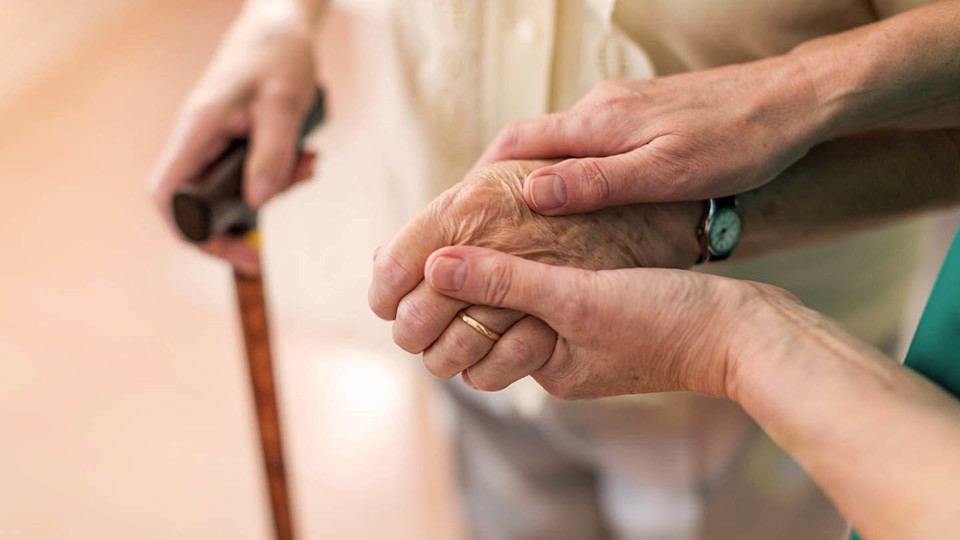
Medical negligence
How to be an advocate for a vulnerable family member
We spoke with Jayne Connery, Director and Founder of our charity partner Care Campaign for the Vulnerable (CCFTV) to understand further how you can actively advocate for a vulnerable family member if they are facing challenges in a care setting.
It can be a highly stressful situation if a vulnerable family member is not receiving the necessary care they need or are being neglected by a professional care provider.
We spoke with Jayne Connery, Director and Founder of our charity partner Care Campaign for the Vulnerable (CCFTV) to understand further how you can actively advocate for a vulnerable family member if they are facing challenges in a care setting.
What are some common trends that a vulnerable family member is being neglected?
If there is concern for a vulnerable family member’s welfare, it can be difficult truly understanding the situation if they are unable to speak out for themselves.
It is an important responsibility for you to make sure your family member is in the best capable hands and are treated appropriately whilst you can’t always be present.
If issues arise, you can help your loved one by being their voice and identify a proper solution. It is important to trust your gut instincts if there are any signs of mistreatment.
Some common trends that may indicate poor care can include:
Unexplained injuries such as bruising, lacerations or even serious injuries that require hospital treatment.
- Medication or prescription errors.
- Notice of eviction for your family member.
- You are restricted or banned in visiting your family member.
- You receive complaints that your family member is being disruptive or refusive.
- Poor communication or transparency such as difficulty receiving answers for questions.
How can I be an advocate for a vulnerable family member?
Any family member or friend can be an advocate for a vulnerable family member. Together with Care Campaign for the Vulnerable, we have put together some insightful guidance on how you can approach these difficult situations with confidence.
1. Take time to prepare
Take an opportunity to prepare through research and knowledge building to feel more familiar with the care sector. There are various sources of information available and online tools to discover case studies, policies and articles to gain an understanding of what proper procedures should be in place.
2. Understand your family member’s rights, your own rights and care worker rights.
Difficult situations in care settings can often be intricate and complex.
By putting time into knowing what the rights are for all parties can allow for more understanding of the situation at hand and what solutions may be best for your vulnerable family member.
3. Contact the care home to raise the issue
If you feel concerned for your vulnerable family member, raise the issue directly with the care home, care worker or management. It is important to identify with them your concerns to allow them to take accountability, answer any questions or identify a solution with them.
You can also put together a formal letter of complaint to address the issues clearly in a written format. Care Campaign for the Vulnerable services include supporting people in writing an effective letter of complaint if you are unsure where to start.
4. Hold a meeting with the care home
When your concerns are not being addressed properly, it may be time to hold a formal meeting with the care home. This is a dedicated time to run through what issues are arising and find an appropriate solution for all involved.
When you attend the meeting, it may be worth having another family member or friend with you for support. CCFTV are also on hand for support during these meetings and can be in attendance to support you with the issues being discussed.
5. Raising legal action
There are highly difficult situations where injuries have occurred, abuse or even death because of poor care or mistreatment.
Advocacy also means finding legal support in support for your loved one. Abuse solicitors can support you in understanding how an injury or illness has occurred and if it was deliberate abuse or negligence in a care setting.
Care Campaign for the Vulnerable
Care Campaign for the Vulnerable was founded by Jayne Connery a decade ago, as a non-profit organisation, committed to addressing the critical need for safety monitoring in care homes for vulnerable individuals with dementia. 10 years later, the organisation has made a significant impact in the care sector, supporting many vulnerable individuals and their families, as well as guidance to care workers across the UK.
CCFTV have collaborated with safeguard teams, social workers, care providers and commissioning groups to bring national awareness to challenges in the sector, implementing transparency methods and safety monitoring systems in care homes for the welfare of vulnerable family members.
Our partnership with Care Campaign for the Vulnerable is valuable in making a meaningful difference, ensuring vulnerable individuals in care homes are supported and safe.
If you have a legal claim for a family member
Slater and Gordon have extensive experience supporting vulnerable individuals and their families with legal guidance for medical negligence and abuse claims. We understand the challenges that come with these difficult situations and our solicitors are here to help you every step of the way.
If you are considering making a medical negligence claim, speak with one of our experts today for a free initial consultation by calling 0330 107 5064 or contact us online.
If you would like to discuss an abuse claim, book a free initial consultation with one of our abuse solicitors by calling 0330 107 5061 or contacting us by email.



